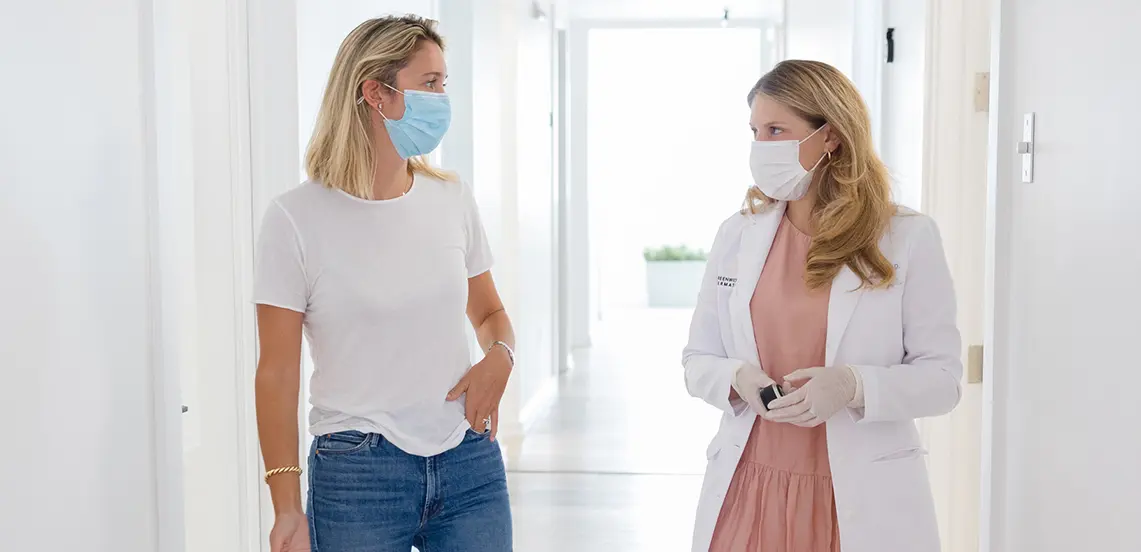Psoriasis is a persistent autoimmune disease that is characterized by red, scaly, and raised skin patches. It can also affect the joints and lead to cardiovascular disease if not well-managed. As one of the most common skin conditions seen in our office, our team of Board Certified Dermatologists at Greenwich Point Dermatology in Greenwich, CT, have extensive experience in helping patients manage and find relief form their psoriatic symptoms.
What causes psoriasis?
Psoriasis is a condition that has a hereditary component, meaning that a patient’s parents may not have had psoriasis, but the combination of genes from both parents has caused the condition.
There are common triggers that can cause a psoriatic flare. For example, stress, skin injury, infection, and certain medications can exacerbate a flare, causing increased itchiness and the manifestation of additional plaques.
What are the types of psoriasis?
There are five types of psoriasis.
- Plaque psoriasis is the most common type, often appearing on the the scalp, knees, elbows and back and characterized by red, scaly
- Guttate psoriasis is the second most common type that is often seen in children or teenagers after a bacterial strep infection. It’s characterized by dot-like
- Inverse psoriasis manifests as red lesions in skin folds such as behind the knees, under the arms or in the
- Pustular psoriasis, also known as palmoplantar is often seen on the hands and It manifests as white pustules or blisters surrounded by red skin.
- Erythrodermic psoriasis is the most rare yet most severe type of Covering most of the body, it is characterized by red lesions that cause itching, pain, and skin peeling.
What are my treatment options for psoriasis?
Luckily, there are a number of ways to help reduce the scaly, itchy plaques. Sometimes, the best treatment is a combination of therapies.
Therapies include:
- topical creams, ointments, andshampoos
- lighttherapy
- systemicmedications
Contrary to most recommendations by dermatologists, sun exposure has also been shown to help alleviate symptoms. During your appointment, Dr. Dolder and the team can work with you to determine the best protocol for you.
To learn more about the rosacea treatments that we offer at Greenwich Point Dermatology or to book a consultation, please contact us here or email info@greenwichpointderm.com.

